Life Sciences
Composition of the Council for the Field of Science – Life Sciences (NZ)

Prof. dr hab. Ewa Łojkowska – Chair of the Scientific Council for Life Science. A graduate of the Faculty of Biology and Earth Sciences, Nicolaus Copernicus University. Currently, she is Head of the Department of Plant Protection and Biotechnology, the Intercollegiate Faculty of Biotechnology of the University of Gdańsk (UG) and the Medical University of Gdańsk (MUG) in Gdańsk. Between 2005-2012, she was Dean of the Intercollegiate Faculty of Biotechnology of the University of Gdańsk and the Medical University of Gdańsk. She is the founder of PhD studies “Life Science and Mathematics Interdisciplinary Doctoral Studies (LiSMIDoS)” at the University of Gdańsk. She collaborates with Prof. Alessio Mengoni of Università degli Studi di Flirenze (Italy) and Prof. Nicole Hugouvieux-Cotte-Pattat of Institut National des Sciences Appliquées in Lyon (France). Between 20011-2012, she lectured at the Università degli Studi di Perugia (Italy). She conducts research within the European ERA-NET Euphresco “Assessment of Dickeya and Pectobacterium spp. on vegetables and ornamentals (soft rot) “. She is a specialist in molecular factors determining bacterial pathogenicity, biodiversity and epidemiology of bacterial plant pathogens, the molecular basis of plant resistance to bacteria and molecular taxonomy. The second area of her research covers issues concerning biologically active, plant secondary metabolites, the possibility of their use for the protection of human health, biotechnological methods of propagation of rare and endangered plant species (Polish orchids, insectivorous plants). She is the founder of a research school that focuses on the study of biodiversity, taxonomy and molecular factors determining the pathogenicity of bacterial plant pathogens. She has promoted 20 doctoral candidates and 5 of her fellows have been awarded a degree of doctor habilitated. During the 2013-2016 and 2017-2021 terms of office, she was a member of the Central Commission for Academic Degrees and Titles and deputy chair the Section of Biological, Agricultural, Forestry and Veterinary Sciences of the Central Commission and since 2011 deputy chair of the Biotechnology Committee of the Polish Academy of Sciences. Chair of the Jury of the “L’Oreal-UNESCO for Women in Science Award” and President of the Professor Wacław Szybalski Foundation.
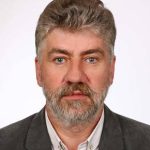
Dr hab. Marek Foksiński, prof. UMK – Head of the Department of Clinical Biochemistry at the Faculty of Pharmacy. He explores the participation of oxidative and epigenetic DNA modifications in the pathogenesis of human diseases, the potential of antioxidants and their influence on the process of oncological treatment. He actively participated in the implementation of European Union grants (concerted action grants – ESCODD No QLK1-CT-1999-00568 and networks of excellence grants – FOOD-CT-2005-513943 ECNIS implemented under the FP6 and more than a dozen grants from the State Committee for Scientific Research, the Ministry of Science and Informatisation and the National Science Centre. He was also one of the recipients of the Polish-American grant (Skłodowska-Curie MZ/NIST-97-298). He was the principal investigator of two research projects from the State Committee for Scientific Research the results of which were published in international journals. He has also obtained funding for the research project entitled “Products of enzymatic oxidation of 5-methylcytosine as new predictive factors in response to systemic breast cancer treatment” from the National Science Centre (grant number 2015/17/B/NZ5/00640). He is also principal investigator of the project on the part of Collegium Medicum “Medicine and Human Health. The Kujawsko-Pomorskie Interdisciplinary Programme of Personalized Diagnosis and Health Care” within the Regional Operational Programme of the Kujawsko-Pomorskie Voivodeship for the years 2014-2020 (RPKP.01.01.00-04-0003/17). In addition to scientific and administrative activities, he also participates in the works of various bodies. He took an active part in the organization of the PhD Studies at the Faculty of Pharmacy and is a member of the Commission for PhD Studies. He is also a member of the University Disciplinary Committee for Academic Teachers. He is a member of expert and evaluation panels for research projects at the local level and National Science Centre panels for Life Sciences. He is a laureate of the Team Scientific Award, Faculty of Medical Sciences, Polish Academy of Sciences. He also received the Team Award of the Minister of Science and Higher Education in 2006 and the Team Awards of the Minister of Health and Social Welfare in 1995, 2000, 2001 and 2008. He is a beneficiary of many awards of the Rector of the Nicolaus Copernicus University.

Dr hab. n. med. Agnieszka Gorzkowska – affiliated with the Department of Neurology of the Medical University of Silesia in Katowice. A neurologist, a specialist in clinical psychology. She is Head of the Neurorehabilitation Clinic of the Department of Neurology, the Medical University of Silesia in Katowice. She is Vice-Head of the Neurology Ward and Stroke Ward of the University Clinical Centre in Katowice. Additionally, she serves as Vice-Chair of the Committee on Psychological Sciences of the Polish Academy of Sciences in Katowice. She implements scientific projects concerning neurodegenerative diseases of the nervous system, in particular, Parkinson’s disease and Alzheimer’s disease. She has been especially involved in the research on dopamine dysregulation syndrome in Parkinson’s disease, molecular conditions of neurological diseases, including dementia. She has presented her work at international and national congresses, mainly concerning neurodegenerative and extrapyramidal Parkinson’s disease. She is a co-founder of the field of study – neurobiology at the Medical University of Silesia. The scientific collaboration includes 1. TeleBrain – Artificially Intelligent EEG Analysis in the Cloud; Project Acronym: TeleBrain NCBiR, German-Polish cooperation POL182P2Z1-011 Technische Universität Ilmenau, Germany and Silesian University of Technology in Gliwice 2. Centre for Research and Implementation of the Health Support Strategy; Project Acronym: RIDage Regional Initiative of Excellence, Ministry of Science and Higher Education 3. Development and evaluation of the effectiveness of innovative dietary supplements as a result of testing unique strains of probiotic bacteria and previously unused mixtures of compounds with anti-glycological effect – the National Centre for Research and Development, Operational Programme Intelligent Development 2014-2020; application number: POIR.01.01.01-00-0985/17. Development of innovative methods of neuropsychological therapy for adults. Contractor ̶ Expert Technicenter Sp. z o.o. Project co-financed by the EU from the European Regional Development Fund as part of the Regional Operational Programme of the Silesian Voivodeship for 2014-2020.

Prof. dr hab. Edyta Reszka – graduated in molecular biology from the University of Łódź. As a fellow of the Transfer of Knowledge in Molecular Biology and Epidemiology of Occupational and Environmental Cancer (EPI-Tok) Fellowship and the ECNIS Exchange Fellowship Network of Excellence, she worked at the Institute of Toxicology of the Johannes Gutenberg University in Mainz, Germany. She is Head of the Department of Molecular Genetics and Epigenetics at the Nofer Institute of Occupational Medicine in Łódź and she serves as President of the Łódź Branch of the Polish Society of Toxicology. She is also a member of the Association of European Toxicologists and European Societies of Texicologi (EUROTOX), Working Time Society (WTS), Cancer Epigenetics Society (CES) and the Polish Biochemical Society (PTBioch). Her research includes the study of epigenetic and genetic markers with consideration given to gene-gene, gene-environmental or gen-diet interactions to determine the risk of disease as well as the diagnosis, forecasting or treatment of civilization diseases. Her research interests also include the circadian rhythm and its influence on the functioning of the body, including the mechanisms of cancer development. Her current scientific achievements include over 60 publications. Dr Edyta Reszka was principal investigator and contractor in many scientific projects funded through national and international competitions including projects from the National Science Centre and PNRF/EOG funds. She is a reviewer of many publications in journals and research projects, including the Diamond Grant and COST. For many years she has cooperated, among others, with I Clinic of Urology, Medical University of Łódź, Department of Laboratory Medicine and the Biobank of the Medical University of Gdańsk, the European Institute of Oncology in Milan, Italy, the National Health Institute in Oslo, Department of Genetics in Psychiatry, Medical University of Poznań, and she is a member of the Scientific Council of the Nofer Institute of Occupational Medicine.

Prof . dr hab. – Jacek Witkowski – the author of 192 scientific articles and more than a dozen chapters in international textbooks, and his works have been cited more than 7850 times, corresponding to an index of h=43 (according to the Google Scholar database). Prof. Witkowski has so far (2022) promoted seven PhDs in medical sciences and supervised three habilitations of female colleagues in the unit. He is a member of editorial boards and a reviewer for many international gerontology and immunology journals, including Biogerontology, Experimental Gerontology, Current Gerontology and Geriatric Research, Journal of Immunology, Frontiers in Immunology, Frontiers in Aging, Mechanisms of Aging and Development, Central European Journal of Immunology, and Acta Biochimica Polonica.
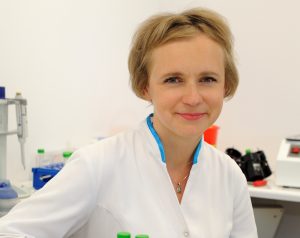
Prof. dr hab. Kamila Wojas-Krawczyk –
graduate of the Medical University of Lublin, laboratory diagnostician, specialist in laboratory medical immunology. She is in the process of receiving specialization in laboratory medical genetics. In her scientific work, she mainly deals with disorders of the immune system in cancer. She has completed numerous internships in Polish and foreign laboratories, including an internship at the Laboratory of Tumor Immunology at the University of Ulm on monitoring the state of the immune system in patients undergoing various immunotherapy methods, or an internship at the scientific laboratory of the Charite Department of Dermatology at Humboldt University in Berlin on dendritic cell generation techniques and the application of immunotherapy in melanoma patients. She is employed at the Department of Pneumonology, Oncology and Allergology at the Medical University of Lublin. She is a member of the team introducing modern immunotherapy methods for the treatment of lung cancer. In addition, he is involved in molecular diagnostics of predictive factors in qualifying for molecularly targeted therapies. She is a member of many national and international scientific societies, including the International Association for the Study of Lung Cancer (IASLC) and the European Society for Cancer Immunology and Immunotherapy.
Author of numerous scientific articles, editor of scientific studies of monographs and lectures on the complex mechanisms of the immune system. She is the recipient of the prestigious UNESCO and L’oreal Fellowship for Women and Science and many other awards, including the Minister of Health Award for a series of publications on dendritic cells. She is a person who widely promotes popular scientific knowledge about immunotherapy. For more than 14 years she has been the coordinator for the Lublin province of the “More Beautiful Life” campaign – care workshops for women undergoing cancer treatment. She has taken scientific patronage of conferences and scientific meetings. She is co-organizer of webinars devoted to the comprehensive care of patients undergoing oncological treatment. Privately, she has conquered many mountain peaks, is passionate about street and mountain running and the Spanish language.
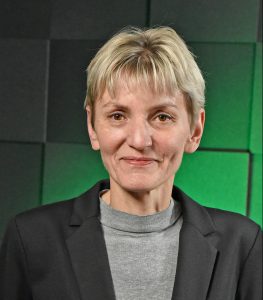
Prof. dr hab. inż. Beata Kolesińska –
Professor of science in chemistry, employee of the Technical University of Lodz (Faculty of Chemistry, Institute of Organic Chemistry), Head of the Peptide and Protein Chemistry and Engineering Group. Her research interests include i) biologically active peptides and their use in medicine, peptide-drug/tag conjugates; ii) peptide and hybrid materials based on peptides/proteins; iii) design, synthesis and application of peptides forming stable conformers. Author and co-author of 104 scientific publications in international journals, 11 chapters in books, 6 publications of national scope, 33 peer-reviewed post-conference publications, more than 230 communications at national and international conferences, and 18 patents and patent applications.
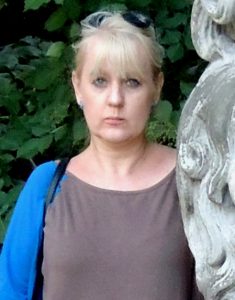
Dr hab. Joanna Izdebska, prof UG – graduate of the Faculty of Biology at Adam Mickiewicz University in Poznan. She is currently the Head of the Department of Invertebrate Zoology and Parasitology at the Faculty of Biology of the University of Gdansk, associate Dean for science, Head of the Doctoral Program in Biology, Ecology and Microbiology at WB UG, and a member of the Committee on Organismal Biology of the Polish Academy of Sciences. She specializes in zoology, parasitology and ecology; her main area of activity is the biology, taxonomy and ecology of animal parasites. Her scientific output includes about 140 peer-reviewed publications, nearly 120 others and a book. Important achievements have been the discovery and publication of descriptions of two genera new to science and 23 new species of mites of the nematode family Demodecidae, peculiar parasites of mammals, both domestic, synanthropic, rare and endangered (including ungulates – bison, carnivores – domestic cat, domestic dog, the European otter, the common polecat, shrews – the carnic toothpick, bats – the brown bat, the great boa constrictor, or rodents – the European beaver, the house mouse, the wandering rat, the Indian bandicoot, mice – the forest, field and scrub mice, and the common vole). She has also made a comprehensive study of the parasitic arthropod fauna of the bison; she conducts multidirectional studies of the parasitofauna of animals associated with aquatic environments, including marine mammals. She was the manager or contractor of 14 research projects. She has developed two procedures for testing the efficacy of biocides for the control of parasitic arthropods, registered by the Office for Registration of Medicinal Products, Medical Devices and Biocidal Products, and has performed nearly 80 parasitological, faunal and ecological expert reports. She is a member of the Board of Directors of the Polish Acarological Society, as well as a member of the Gdańsk Scientific Society, the Polish Laboratory Diagnostics Society, the Polish Parasitological Society, and the Association of Bison Lovers. She is a recipient of the Award of the Gdańsk Scientific Society, the Dr. Eng. J. Masłowski Award, awards of the JM Rector of UG, and national decorations.
Composition of the Council in the years 01.2020-12.2022 (NZ)
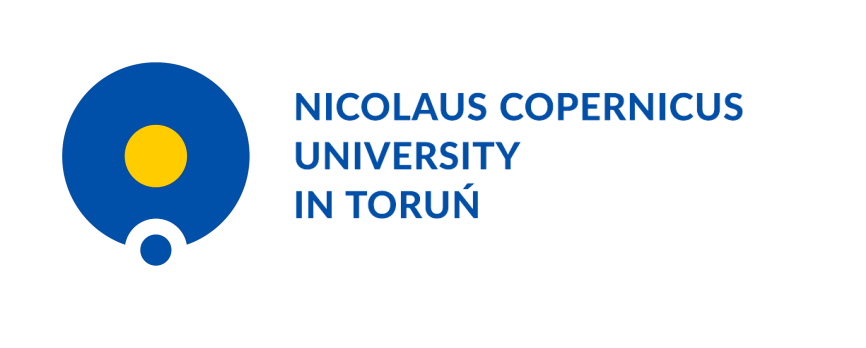
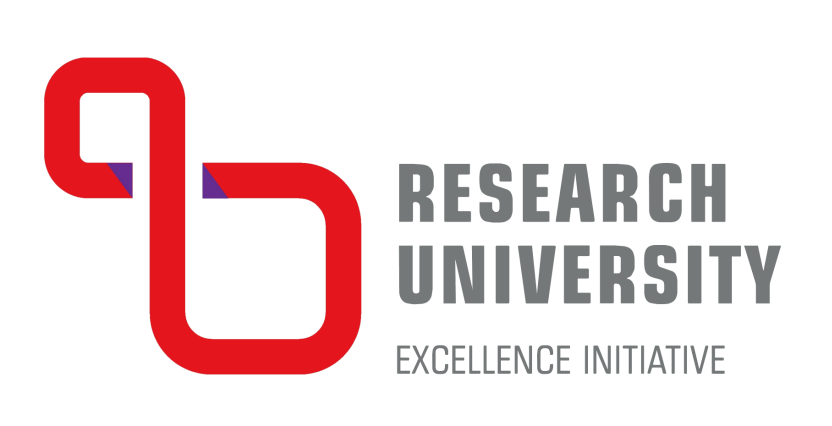
 ul. Gagarina 7, 87-100 Toruń
ul. Gagarina 7, 87-100 Toruń